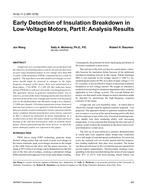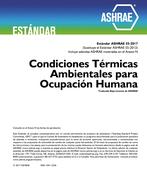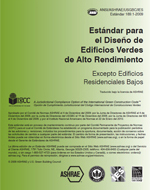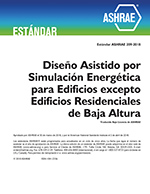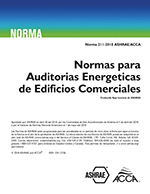Description
A high-risk, low-cost feasibility study as performed with the objective of obtaining data to hich concepts for detection of early stage insulation failure in low-voltage (less than 600 V) pulse width modulated (PWM) controlled motors could be applied. The hypothesis as t hat smal l local changes in insulation health might be detected in changes in the high-frequency response of the motor. Tests were performed on a three-phase, 1750 RPM, 37.3 kW (50 Hp) induction motor using a PWM drive with user selectable switching frequencies. The approach chosen to generate insulation failure as to remove a section of the motor housing and locally heat the first end turn of one of the coils. Voltage and current were measured only on the faulted phase into the motor using a two-channel, 2.5 MHz per channel, 16 bit data acquisition system. Statistical and spectral analyses ere applied to both baseline and fault data sets and the results examined for trends consistent with the motor condition. Results from the first series of tests,reported in Part I, showed no indication of motor degradation. In a second series of tests, the motor intake as blocked and local heating of the end turn increased in order to promote motor failure. Data acquired during this series of tests, in which the motor ultimately failed,are reported in this paper.
Citation: Symposium, ASHRAE Transactions, vol. 108, pt. 2
Product Details
- Published:
- 2002
- Number of Pages:
- 8
- File Size:
- 1 file , 2.1 MB
- Product Code(s):
- D-8909
